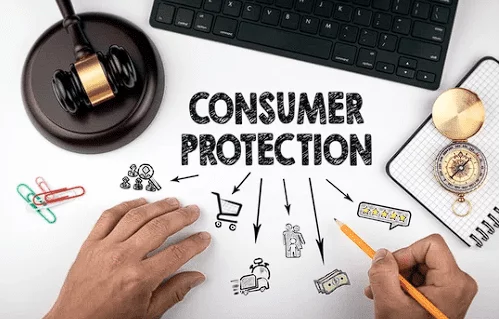In India, consumer protection laws are designed to safeguard buyers from unfair trade practices and ensure they receive quality goods and services. As a consumer, knowing your rights is crucial for protecting yourself against exploitation and making informed decisions. The Consumer Protection Act, 2019, which replaced the earlier 1986 Act, strengthens consumer rights and provides a more robust framework for addressing grievances. Here’s an overview of your legal rights as a consumer in India.
1. Right to Safety

The Right to Safety ensures that consumers are protected against products, services, and processes that are hazardous to life or property. This right is particularly relevant when purchasing items such as electrical appliances, pharmaceuticals, and food products. Always check for safety certifications and standards before making a purchase to ensure the product meets safety requirements.
2. Right to Information

The Right to Information empowers consumers to demand complete and accurate information about a product or service before making a purchase. This includes details about ingredients, price, quantity, quality, and safety standards. Sellers are legally obligated to provide transparent information, and consumers can file complaints against misleading advertisements or false claims.
3. Right to Choose

The Right to Choose guarantees consumers access to a variety of products and services at competitive prices. This right is intended to prevent monopolies and ensure that consumers are not coerced into buying substandard products. It allows consumers to make informed choices from a range of options without pressure or restriction.
4. Right to be Heard

The Right to be Heard ensures that consumers have the opportunity to voice their grievances and seek redressal. This right empowers consumers to raise complaints and be assured that they will be considered. With various consumer forums and grievance cells in place, you can lodge complaints against any unfair trade practices or exploitation.
5. Right to Redressal

The Right to Redressal provides consumers with the opportunity to seek compensation or replacement for defective goods or unsatisfactory services. If you encounter any issues with a purchase, you can approach consumer courts and forums for resolution. The Consumer Protection Act has established a three-tier consumer grievance redressal mechanism to address issues efficiently.
6. Right to Consumer Education
The Right to Consumer Education aims to empower consumers with knowledge about their rights and responsibilities. Being well-informed enables consumers to make better purchasing decisions and protect themselves from unfair practices. Various government and non-governmental organizations conduct awareness programs and workshops to educate consumers about their rights.
7. Right to Protection Against Unfair Trade Practices

The Right to Protection Against Unfair Trade Practices safeguards consumers against deceptive practices, such as false advertising, black marketing, and hoarding. Sellers must ensure that their marketing and sales tactics are ethical and transparent. Consumers can file complaints against businesses engaging in these practices to seek legal recourse.
How to File a Consumer Complaint in India
If you believe your consumer rights have been violated, you can take the following steps to file a complaint:
1. Contact the Seller: Start by contacting the seller or service provider to resolve the issue directly. Often, issues can be resolved through direct communication without legal intervention.
2. Draft a Formal Complaint: If the issue remains unresolved, draft a formal complaint detailing the problem and the relief you seek. Attach copies of relevant documents, such as receipts, warranties, and communication records.
3. Approach a Consumer Forum: You can file a complaint with the appropriate Consumer Dispute Redressal Commission based on the value of the goods or services in question. These forums operate at the district, state, and national levels, depending on the case’s complexity and value.
4. Submit Online Complaints: The government has facilitated online platforms such as the National Consumer Helpline and the Consumer Protection Act portal, where you can file complaints electronically.
5. Seek Legal Aid: If necessary, seek assistance from consumer rights organizations or legal professionals to help navigate the complaint process and represent you in court.
Conclusion
Being aware of your legal rights as a consumer in India empowers you to make informed decisions and protects you from unfair practices. The Consumer Protection Act, 2019, provides a strong framework for safeguarding consumer interests and ensuring justice. By understanding and exercising these rights, you contribute to a fair and transparent marketplace, fostering accountability and trust between consumers and businesses. Always stay informed, vigilant, and proactive in exercising your consumer rights for a better purchasing experience.
Share your news, articles, deals, columns, or press releases with us! Click the link to submit and join our platform today.


